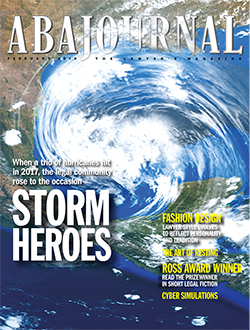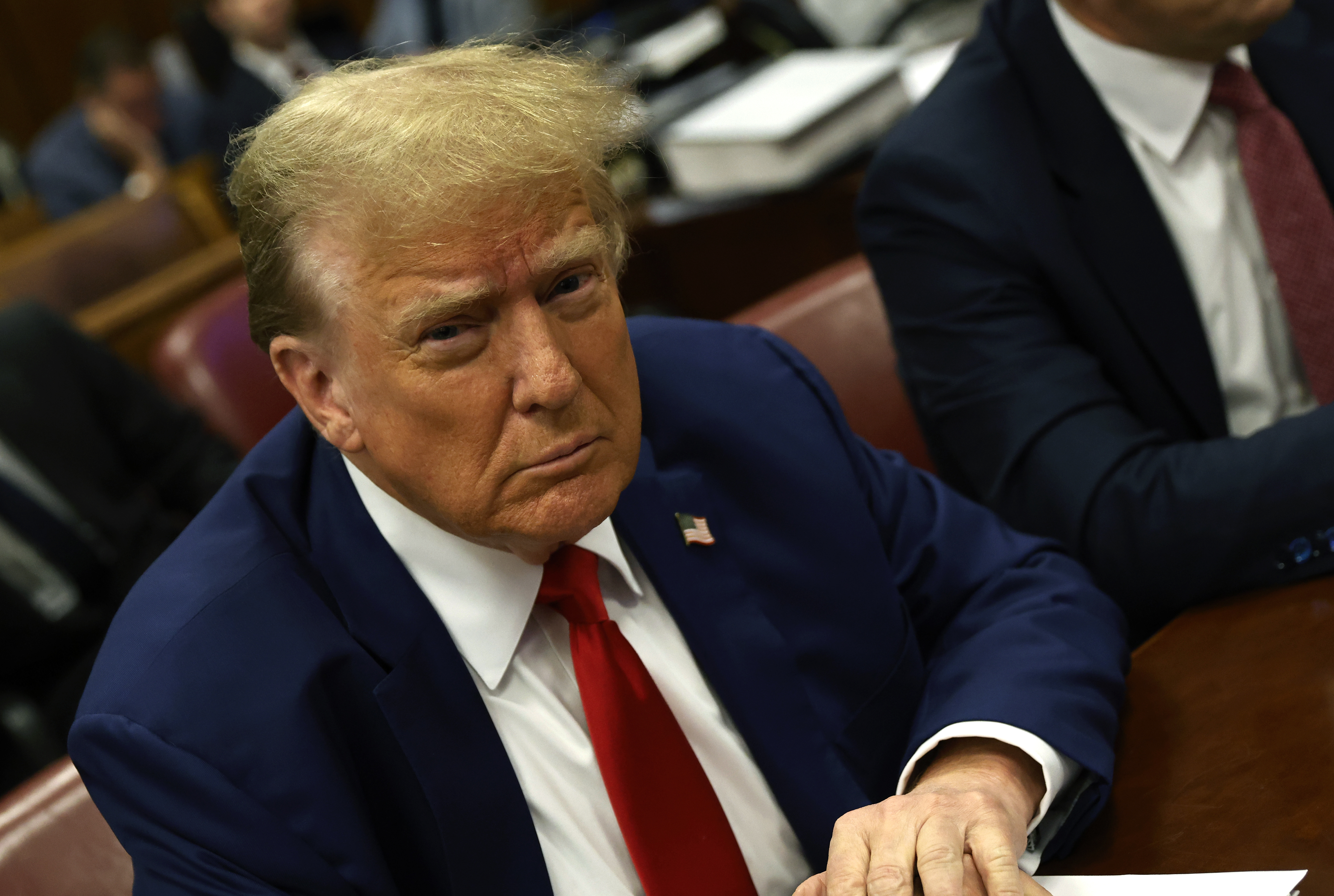ABA mobilizes aid to Puerto Rico and the Virgin Islands
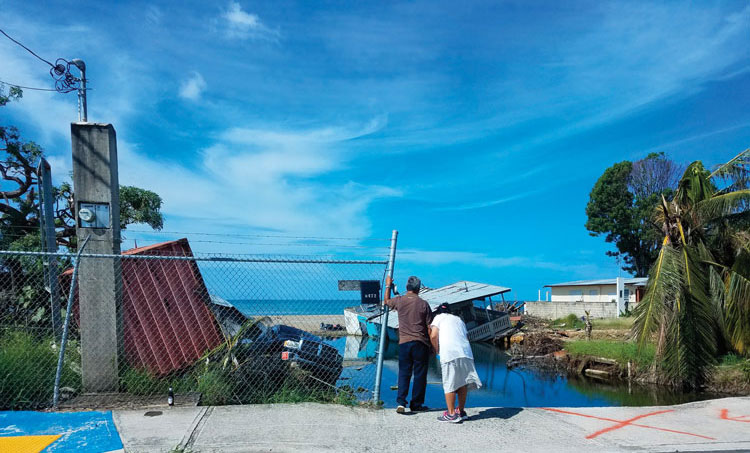
Shutterstock.
As someone who has lived in the Virgin Islands since graduating from law school in 1982, Tom Bolt has experienced hurricanes before, including Hurricane Marilyn in 1995, which destroyed his home.
“After that, we said never again, and we built back stronger and better than before,” says Bolt, shareholder and managing attorney of BoltNagi and a member of the ABA Board of Governors.
But hurricanes Irma and Maria were still strong enough to wreak havoc on the BoltNagi law office on St. Thomas, which he describes as totaled. “It was kind of a combination one-two punch,” Bolt says. “Irma peeled off the roof, and then Maria saturated everything inside.”
In the wake of the catastrophic Harvey, Irma and Maria, the ABA has been working with federal, state and territorial groups to provide disaster assistance to those affected. For the U.S. territories of Puerto Rico and the Virgin Islands, the need has been particularly great because power and telecommunications infrastructure will not be as easy to restore. (See “Hurricane Heroes” to find out about the legal community’s response on the mainland.)
“Can you imagine trying to hold your practice together with very little means of communication?” Bolt says. “It has significantly impacted the practice of law.”
Carlos Rodríguez-Vidal’s firm in San Juan, Puerto Rico, already owned a generator, which was vital after Hurricane Maria destroyed the power grid.
“But we initially had significant problems with regard to the supply of diesel for the generator,” says Rodríguez-Vidal, a managing member with Goldman Antonetti & Cordova and chair of the minority caucus in the ABA House of Delegates. “In addition, there was a curfew that was imposed on everyone, so we were unable to work full time, and we were only able to work a certain few hours of the day so that everyone could go home and meet the curfew.”
The firm’s employees may have had a functioning office to come to, but that didn’t mean they had power at home or running water, even in the capital city.
“There’s always a degree of preparation before any hurricane, and you know what you’re supposed to go buy,” Rodríguez-Vidal says. “But you never prepare for 90 days of no electricity. It’s impossible for you to store, in your home, 90 days of supplies. The rule of thumb used to be five days’ worth of supplies—you know, a gallon per person per day of water, all these other foodstuffs, and batteries and different sorts of things that are just common sense, like having your gas tank full in your car. But in a disaster of this magnitude, that only goes so far.”
FIRST RESPONDERS
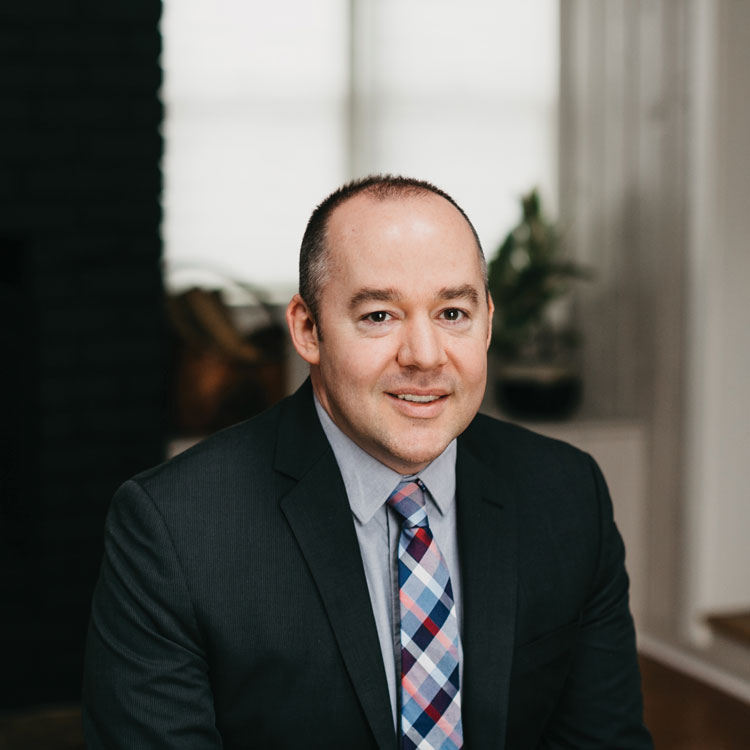
Andrew VanSingel is director of the Disaster Legal Services program of the ABA Young Lawyers Division. Photo by Lauren Vitiello.
At the ABA, members of the Disaster Legal Services program are generally the first to mobilize immediately after a disaster. Last year was an incredibly busy year for the DLS, led by the volunteer team of director Andrew VanSingel and 10 other ABA members. Even before the hurricanes and the wildfires on the West Coast, the DLS was responding to the needs of people in Michigan and West Virginia, which had been struck by storms, floods and mudslides last summer.
Although VanSingel has a full-time job with the IRS as a local taxpayer advocate in Chicago, in the wake of hurricanes Harvey, Irma and Maria it was not unusual for him to come home after work and spend many more hours coordinating Disaster Legal Services’ response.
“I drink about a gallon of coffee a day,” VanSingel says. “You may have a problem when you walk into Starbucks and they have your order ready without you saying a word, which happens now.”
The DLS program, which is run by the Young Lawyers Division, has a memorandum of understanding with the Federal Emergency Management Agency to provide disaster legal services at FEMA disaster recovery centers and to establish toll-free hotlines for survivors who can’t afford a lawyer.
In the case of Puerto Rico—which had no reliable telecommunications—and the Virgin Islands, the second part of this mission proved to be a challenge. So the DLS reached out to an organization on the mainland for help.
The Louisiana Civil Justice Center in New Orleans agreed to partner with the ABA, FEMA, and local bar associations and legal aid providers on the islands to run the disaster hotline services for Puerto Rico and the Virgin Islands. The LCJC’S role for the residents is to collect intake data, provide basic information about issues such as the FEMA claims process, and arrange for referrals to attorneys licensed to practice in the appropriate jurisdictions. From 9 a.m. to 4 p.m. CT, Monday through Friday, islanders affected by the hurricanes can call 800-310-7029 for assistance.
In the first three months of operation, the Louisiana Civil Justice Center took about 1,200 calls, says executive director Jonathan Rhodes. In December, the hotline was averaging 30 to 50 calls per day, and 120 volunteer attorneys had been matched with at least one client. FEMA had received 1.2 million applications for assistance in Puerto Rico alone as of December, he says. “We’re still seeing that people don’t have phone communication,” Rhodes says. “And we’ve maxed out the available volunteers.”
Resources for lawyers looking to volunteer their time are available at ambar.org/DisasterRelief. Spanish-speaking attorneys and attorneys who are licensed in Puerto Rico and the Virgin Islands are in high demand. But a mentorship program is also being developed, so lawyers who have disaster legal services experience can provide advice to attorneys who may be doing that work for the first time.
ON THE GROUND
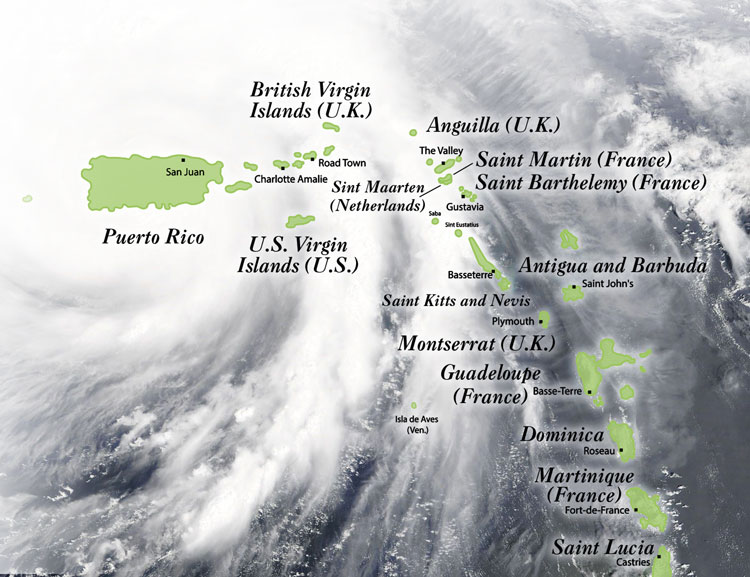
Photo illustration by Sara Wadford.
The DLS also has been coordinating pro bono legal assistance at FEMA’s disaster recovery centers in Puerto Rico and the Virgin Islands.
Amanda Huff Brown, a Microsoft NextGen fellow with the ABA Center for Innovation in Seattle, is the project manager for the DLS response in the Virgin Islands; and Courtney Emerson of Fox Rothschild in Wilmington, Delaware, is her counterpart in Puerto Rico.
“In other disasters that I’ve dealt with there’s never been anything like this,” Brown says. “It is a locale problem.”
With so many people utterly reliant on cellphones for communicating and the power grid down, finding ways to keep phones charged was extremely difficult.
Brown says one of the ways the ABA has been able to be most effective in the Virgin Islands is acting as a central coordinator. The Virgin Islands, which had a pre-Hurricane Irma population of about 107,000, doesn’t have a law school. The Virgin Islands Bar Association has more than 1,000 members, many of whom evacuated to the mainland or are in scattered locations.
The progress toward restoring normalcy in the Virgin Islands has been much slower than Bolt anticipated. But he has been heartened by the response of his colleagues. “Almost every section and division of the ABA has reached out to help with the recovery,” he says.

Chauntis Jenkins-Floyd. Photograph by J.R. Thomason.
In the commonwealth of Puerto Rico, with three law schools and a pre-Hurricane Maria population of about 3.35 million, the DLS has tried to adapt its services to meet the very different circumstances. The ABA is one of several legal organizations based on the mainland United States now present in Puerto Rico and providing assistance. The DLS worked with volunteer attorneys from the Legal Service Corp. in Puerto Rico to staff 29 disaster recovery centers on the island.
“But once the courts in Puerto Rico reopened, and some of their nondisaster-related legal needs began to resume, they have become dedicated to their original mission and their original cases,” says Emerson of Fox Rothschild. So while the disaster recovery centers are still staffed by attorneys, the DLS is focusing efforts on referring people to the hotline to be matched with legal representation.
Recovery for Puerto Rican lawyers will be greatly complicated by the commonwealth’s dire financial straits. In summer 2016, the U.S. Congress established a fiscal control board under the Puerto Rico Oversight, Management and Economic Stability Act to handle the restructuring of the island’s debt.
A 10-year recession already had left many Puerto Rican lawyers struggling for paying clients, and many had left the island, says attorney Laura Miguel, a member of the House of Delegates for Puerto Rico.
“Puerto Rican lawyers need work and clients to keep moving, to not quit the profession, to not move from the island, and to keep running the economy. Otherwise, the island will keep suffering the exodus of attorneys,” say Miguel and her attorney husband, José L. González Castañer.
RESILIENCE AND RECOVERY
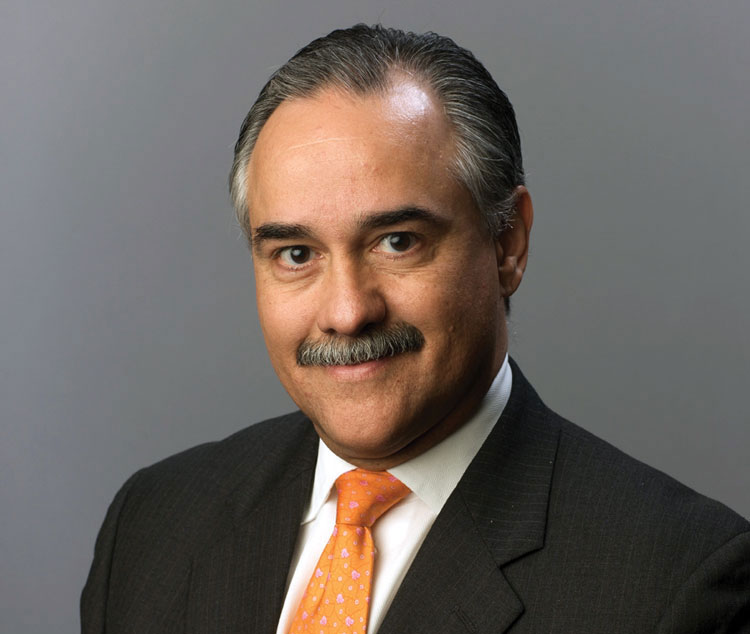
Carlos Rodriguez-Vidal. Photo by Jensen Larson Photography.
Establishing resilience in the wake of disasters is one of the main focuses of the ABA’s Committee on Disaster Response and Preparedness, so much so that the Twitter handle is @ABAResilience.
The committee has launched a three-part webinar series based on the recent disasters, which is available online to members. Bolt and Rodríguez-Vidal participated, sharing what preparations their firms had put in place before the hurricanes and the lessons they’ve learned from the recovery efforts.
The chair of that committee, Chauntis Jenkins-Floyd of Porteous, Hainkel & Johnson, has personal experience with recovering in the wake of a hurricane. A New Orleans resident, she was at a YLD conference in New Mexico when Hurricane Katrina hit.
“I never forgot that experience and how my ABA colleagues rallied around me, literally looked for me because they knew I was headed back to New Orleans,” Jenkins-Floyd says. “And they opened up their homes for me to stay in until I could go home. And so when I had the opportunity to serve as chair of this committee, it was a no-brainer.”
Although lessons from past disasters can help in planning and preparing for future ones, Jenkins-Floyd advises keeping in mind that all such events are different.
“No disaster is cookie-cutter; no disaster is going to be the same; because of the unique communities, the people who live there, the geo-graphy—there’s a number of factors that make the effect of each disaster like this unique,” she says.
For that reason, VanSingel warns people eager to contribute help that recovery efforts should be guided by those in the affected community.
“It is best to understand the specific needs of the community and match that need with assistance that is available,” VanSingel says. “It would be fair to say that most attorneys across the country want to do something, and many have offered as much as getting on a plane and heading down to the impacted area to do recovery work. Although selfless and admirable, this type of response could in itself be disastrous. This is why the impacted communities need to pull resources from us, instead of us pushing them on them.”
Disaster Response Resources
ABA Resources
• ABA Committee on Disaster Response and Preparedness
Volunteering Opportunities
Florida attorneys can visit the Florida Bar Foundation to find post-storm volunteer opportunities for legal aid and pro bono attorneys, or visit Florida Pro Bono Matters.
North Carolina attorneys can find info on volunteering on the North Carolina Bar's Hurricane Florence page.
South Carolina attorneys can volunteer for the South Carolina Bar's disaster relief legal service hotline by filling out this form.
Not licensed in those states but looking to donate your time or money? Check out ambar.org/DisasterRelief.
ABA Journal Coverage
Hurricane Heroes: From the February 2018 issue
Legal community meets relief challenges after hurricanes Harvey and Irma
ABA mobilizes aid to Puerto Rico and the Virgin Islands
Lessons from Katrina
Social media unites lawyers to help those in need
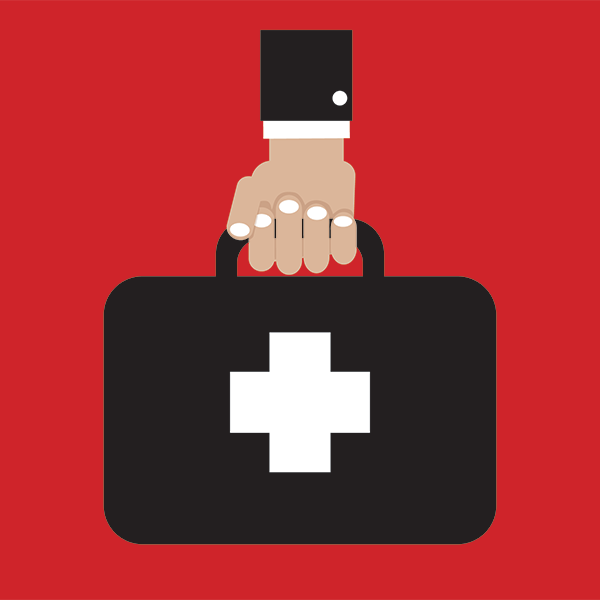
For our latest natural disaster coverage, click here.
Disaster Helplines
The Disaster Distress Helpline (DDH) is a national hotline dedicated to providing year-round disaster crisis counseling. This toll-free, multilingual, crisis support service is available 24/7 via telephone (1-800-985-5990) and SMS (text 'TalkWithUs' to 66746) to residents in the U.S. and its territories who are experiencing emotional distress related to natural or man-made disasters.
For low-income individuals with disaster-related legal needs, the following phone numbers are available:
North Carolina residents: 1-833-242-3549
South Carolina residents: 1-877-797-2227 ext. 120
Virginia residents:
1-804-775-0808 in the Richmond area, or 1-800-552-7977.
Florida residents: 1-866-550-2929.
This article was published in the February 2018 ABA Journal magazine with the headline: "Across the Water: The ABA mobilizes aid to Puerto Rico and the Virgin Islands after hurricanes Irma and Maria."
Write a letter to the editor, share a story tip or update, or report an error.
